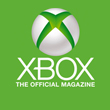The knives have been out for Microsoft since May 2013. That's when the Xbox One was unveiled to a crowd of vocal Xbox fans who perhaps expected much more than Microsoft was promising. Well, maybe 'more' isn't quite the word: 'different' might be more appropriate. While some argue that Microsoft made poor decisions with the One, others will say that it tried to change too much, too quickly. Kinect 2.0 anyone? Used-game lock-outs? Either way, Xbox owners (and the wider gaming world) simply weren't ready for the paradigm shift. And regardless of which side you take, there's no denying that Microsoft lost touch with the desires of its fans.
During an exclusive interview with GamesRadar+, even Phil Spencer - Head of Xbox - admits that it's the main lesson he has learned since launching Xbox One. “The thing that we've probably taken to the core at the team is listening to the customer - which sounds so trivial, I feel stupid even saying it - but listening to the customer at every step.” He continues: “We've implemented the Xbox feedback program, allowing people to go in and tell us what they like and don't like and would like to see, and we've stayed on our monthly update cadence about making regular updates to the platform. It sounds so trivial, but it's easy both for a game team or the platform team to start listening to yourselves and believing your own message, but the customer isn't us.”
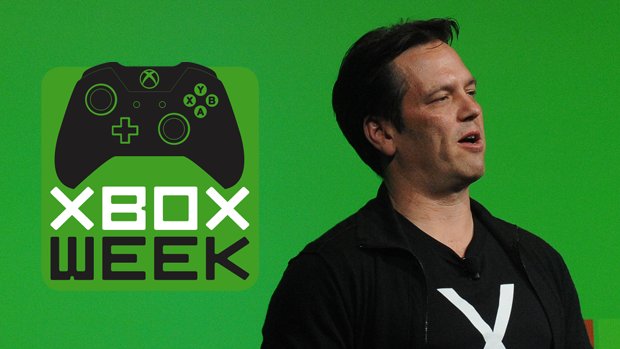
Spencer is in a reflective mood. He has just announced that Windows 10 is going to be the standard interface for both PCs and Xbox One, bringing with it a bold intention to allow developers much easier access to the combined audiences. While talk of Windows and operating systems is about as dry as sand spread over a water-biscuit, Spencer outlines the true potential of having one system across all its platforms.
“I actually think the most important thing, which'll take time, is the fact that we're giving the Windows game development community the same set of tools to develop their games that we've had on Xbox through Xbox Live,” he says. “So you see more and more games that are developed on Windows where it's so trivial for the developer to also target Xbox One. That means you'll get more content on Xbox, and I think that for me as an Xbox gamer - and I play on it almost every day - the ability to play more and more games can only be a good thing.”
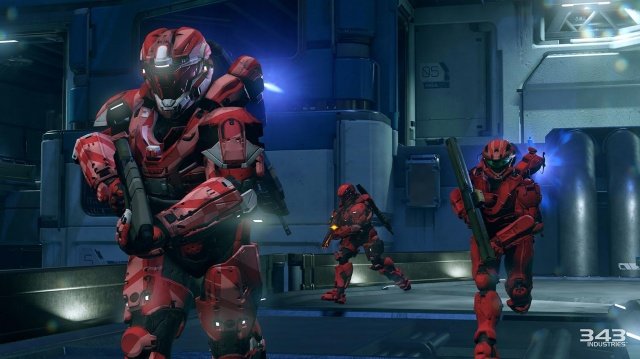
Ah yes, the games. Since Microsoft revealed the Xbox One it has been backing away from casual-focused tech, and pushing games to the forefront. And that's massively to its credit, because it’s what the players genuinely want - it's why video games consoles really exist. It's a clear sign that Microsoft is making good on its promises of actually listening to its fans.
“I actually think the next 12 months are going to be about the games. I just love that, and I look at the lineups... and I think Sony'll have an amazing lineup, and I look at what the PC guys are doing and what people are doing at Xbox and I think we're really going to see one of the biggest years for games themselves in 2015. I think this is going to be a fabulous, fabulous year for games, and that's nice.”
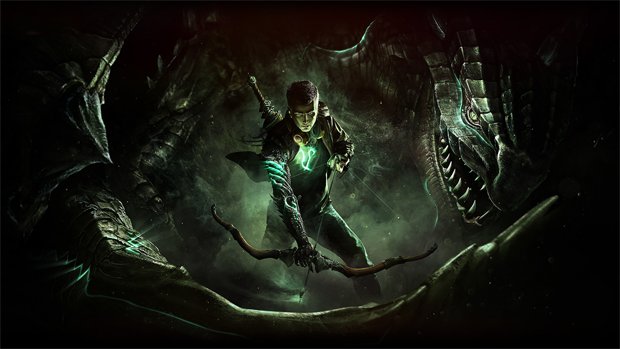
Microsoft's 2015 line-up is currently the strongest of all the platform holders. Halo 5: Guardians, Rise of the Tomb Raider, Forza 6, Scalebound... and there is undoubtedly more to come from E3 in June. Spencer has every right to talk up 2015 as a quality year for games. More than this, though, he sees the long term potential in modern games. He knows that - to be truly successful - you need to make your game part of a player's lifestyle; a continuous service rather than a one-shot deal. “Destiny is a game I look at - and I play a ton of Destiny right now,” he says with a smile. “You know, gaming today is about driving engagement. I think it used to be all about driving excitement up front so that people buy your game, but that has shifted in recent years.”
Weekly digests, tales from the communities you love, and more
That kind of thinking is reflected in the purchase of Minecraft developer Mojang. Microsoft is keen to not only create a higher quantity of exclusive games, but also to serve its players for longer when it invests in something big. That's not to say that traditional, one-shot, AAA experiences are dead. Far from it. However, Spencer admits that they're not what's driving the industry forward at the moment - it's more maintaining the status quo.
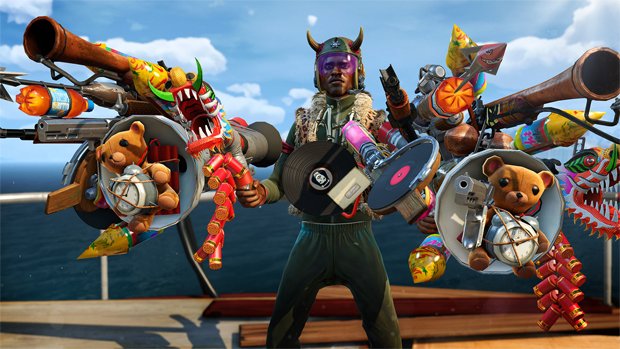
“I'll look at the The Order from Sony, which I know there have been questions about. I think the Ready at Dawn team is a good one, and I applaud Sony for trying to build new IP on PS4 on a the new generation of consoles - trying to do something new, not doing a sequel. And I think they did some really remarkable things in that game and I hope they have success with it. But The Order is likely not going to be - much like Sunset Overdrive isn't going to be - the thing that people look back on and think that's when the new-generation truly happened, when gaming became different. But I love that we're all trying, and we're all making those attempts, because that's the lifeblood of what we do.”
So what is the future of Xbox? The big focus of GDC this year was virtual reality, which is impressive tech. Sony, Valve, and Oculus are all offering their own headsets, while Microsoft has been conspicuously quiet about VR. Spencer is obviously reluctant to go into too many details about HoloLens, the company's closest equivalent project, but he does share some information about it.
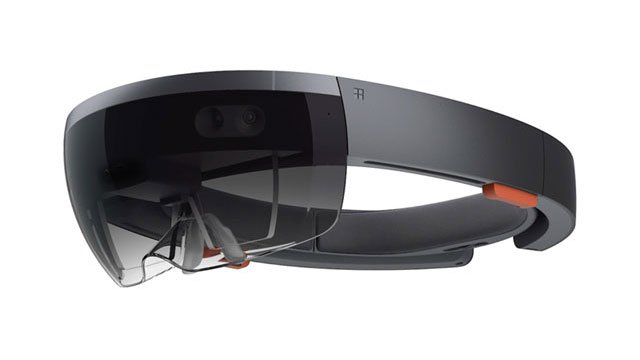
“It's too early to set the philosophy for HoloLens out yet,” he admits. “I'll say for us, we don't know really what's going to work, but where we start is: what do we think HoloLens is as a platform? It's untethered, it's a standalone device, so we should look at experiences that let you move, because that's what the device is about. We think it's 'mixed reality' is opposed to a VR world, so let's work on building experiences that are mixed reality to make sure we're proving out something that drives gamer delight.”
Spencer continues: “We've created a something with HoloLens that's different from VR - not saying it's better or worse... just that it's different. In reality, when it gets in the hands of the developers, it'll be something we didn't expect.” So it sounds like HoloLens is quite a way off. It's not even with developers just yet, and remains an exercise in technology creation, rather than a commercial prospect, at the moment. But it's an indication that Microsoft is thinking about the future of games, and not merely contenting itself with servicing the immediate needs of players.
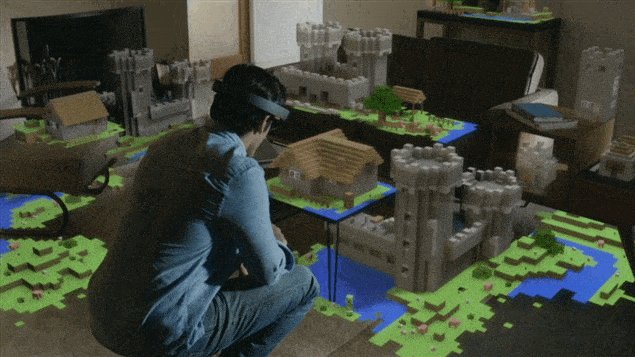
The whole interview with Spencer creates a sense that Microsoft is more relaxed now than it was 12 months ago; than it was six months ago. With Xbox One, the company has learned some hard lessons, and will likely become stronger for it. Sure, the knives are still out for Microsoft in some corners of the internet but, while the criticisms used to be fuelled by a genuine lack of faith in the Xbox maker, it now seems they're more motivated by jealousy. Microsoft has a plan, it has the games, and it feels like 2015 will be a very strong year for Xbox.
Want more Xbox Week features? Here's our exclusive look at Rise of the Tomb Raider. Or check out the Official Xbox Magazine homepage.
The official source for everything Xbox One, Xbox 360, and Xbox Series X. We're also a magazine, covering all things Xbox in the UK and the US. Originally established in 2001, the magazine was discontinued in April 2020.
